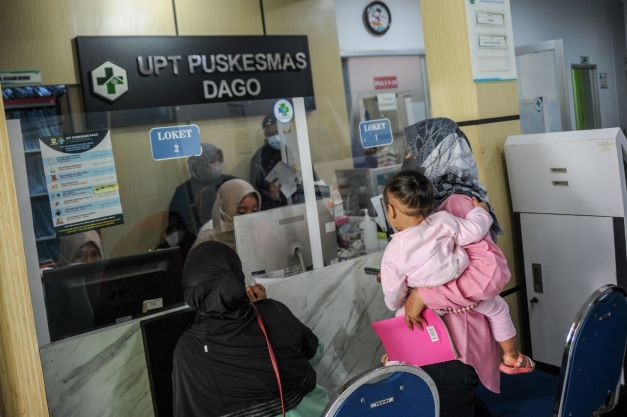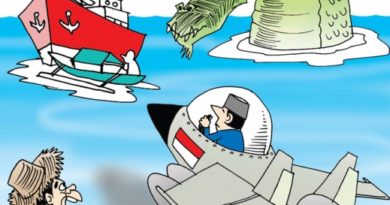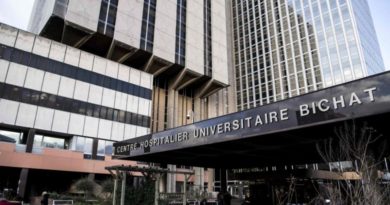OP ED-OPINION | ACADEMIA- Lessons learned from a healthier Southeast Asia
Health for all: A mother brings her child to a community health center (Puskesmas) in Dago, Bandung, West Java, on Nov. 21, 2022 for a polio vaccination. (Antara/Raisan Al Farisi)
Curtis S. Chin
Los Angeles. California, United States

For Southeast Asia — a diverse region that is seeing enduring health challenges, from growing numbers of diabetes and cancer cases, to the still unfolding consequences of the COVID-19 pandemic — it is clear. What just happened in LA should not stay in LA. Insights should be shared across the Pacific. When the annual Milken Institute Global Conference convened here this week (April 30-May 3), the Asia and Pacific region—including Southeast Asia—was very much part of the agenda, with sessions on ASEAN and Indonesia, among other Asia-focused panels.
.
.
Centered around the theme “Advancing a Thriving World,” the 2023 Global Conference drew more than 3,000 attendees from Southeast Asia and all around the world, including government officials, industry CEOS, award-winning actors and musicians, philanthropists, investors and others, focused on 13 core content tracks. For me, the “Health and Medical Research” discussions were of special interest, particularly those on the ongoing opportunities and promise offered up by an embrace of bioscience.
All this was also underscored to me in Milken Institute chairman Michael Milken’s new book, Faster Cures: Accelerating the Future of Health, published this April and available worldwide through online booksellers.
Full disclosure: I serve as chair, Asia fellows of the Milken Institute as well as senior advisor, Global Markets for the Los Angeles-headquartered economic think tank, whose Asia Center is based in Singapore.
The Milken memoir is a definitive account of the philanthropist’s lifetime of work to accelerate medical breakthroughs—and makes powerful reading for those also exploring the lessons and benefits of cooperation and of overcoming a mindset of “that’s the way things are done”.
Drawing from Milken’s book as well as his recent Wall Street Journal commentary piece, “Another Medical Revolution Is Under Way”, I found five key takeaways that offer up lessons learned for a healthier Southeast Asia.
First, the triumph of science. As recently as the 19th century, people suffered through surgeries without anesthesia, childbirth without antiseptic procedures, and all manner of terrible infections. Fortunately, Milken notes, medicine has advanced from that dark past to the prospect of a bright future that will transform society in the years ahead. Pessimists have often predicted that disease would bring pestilence and doom. Science met these challenges in the form of antibiotics, polio vaccines, statins, genome sequencing, immunotherapies, monoclonal antibodies, anti-retroviral cocktails, robotic surgery, powerful new diagnostic scans, focused ultrasound therapies, artificial intelligence, CRISPR gene editing and mRNA vaccines.
One result of all this progress is worldwide life expectancy has more than doubled in less than 100 years. In large parts of Asia, the gains have been especially dramatic. Japan, as an example, is well known for its citizens’ long life expectancy, and Singapore and also Thailand have become destinations for medical visits, and health and wellness travel.
There is also a remarkable economic benefit. In real, inflation-adjusted terms, the per capita productivity of advanced economies is eight times that of the 19th century average, Milken writes. And half of all economic growth over the past 200 years, he notes, is directly linked to progress in medical research and public health.
Second, data is paramount. The driving force behind this progress, according to Milken, is the astounding advance of our ability to produce, manipulate, store, retrieve and transmit data. Faster, cheaper, more-communicable data has revolutionized medical research.
No longer is a lone scientist working at a laboratory bench likely to produce medical breakthroughs. Science is now a team activity. The teamwork to produce a new therapy often involves the collaboration of experts in multiple countries. They might speak different languages, yet technology knits them together as a seamless creative unit. The benefits of continued teamwork and cooperation across borders in bioscience are numerous.
Third, progress requires effective strategies. It is not enough that researchers are smart and dedicated. Cohesive strategies underlie most medical and public health solutions. Milken’s Faster Cures book explains the plans that helped produce such advances as microbiome sequencing, non-invasive surgery, faster vaccine development, and drugs developed by harnessing artificial intelligence, machine learning and massive computational power. Fourth, we are just getting started. The future looks incredibly exciting.
Milken writes that we can now reasonably speculate about therapies that will one day give us the ability to clean tiny cancers from our bodies as routinely as going to the dentist to clean our teeth.
We can envision gaining immunity from dozens of viruses with a single vaccine. And we can foresee editing genes to eliminate many birth defects, perhaps one day growing new organs from patients’ own cells and even slowing the aging process. All these would have been considered science fiction only a few years ago.
Fifth, the best drug is prevention. Despite all this progress and exciting future prospects, we must address a number of remaining challenges. The first of these is health equity. Those of us in the wealthier nations live years, often decades, longer than the average African, Latin American or South Asian.
Yet, even the regions that have made substantial longevity gains in recent decades still have remaining challenges. Even in the most developed nations, too many people continue to destroy their health through neglect or abuse. That was underscored to me in the book’s closing chapter, on prevention.
It is great when medical science develops a new cure. It is even better when we can prevent disease from occurring in the first place. A focus on improving health also must not ignore mental health.
Even now, amid terrible health inequities and too often toxic, divided times, there is reason for enduring optimism. There is reason to hope that the growing embrace of bioscience will contribute significantly to a future of health that is marked by faster cures—and ideally full, meaningful lives for all.
With thoughtful prevention, says Milken, we will reap more benefits from the ongoing revolution in life sciences. And that too is both message and lesson for all Southeast Asia.
***
The writer is a former United States ambassador to the Asian Development Bank, and the managing director of advisory firm RiverPeak Group, LLC.
. Ads by: Memento Maxima Digital Marketing
Ads by: Memento Maxima Digital Marketing
@[email protected]
SPACE RESERVE FOR ADVERTISTMENT


 Memento Maxima Digital Marketing
Memento Maxima Digital Marketing






